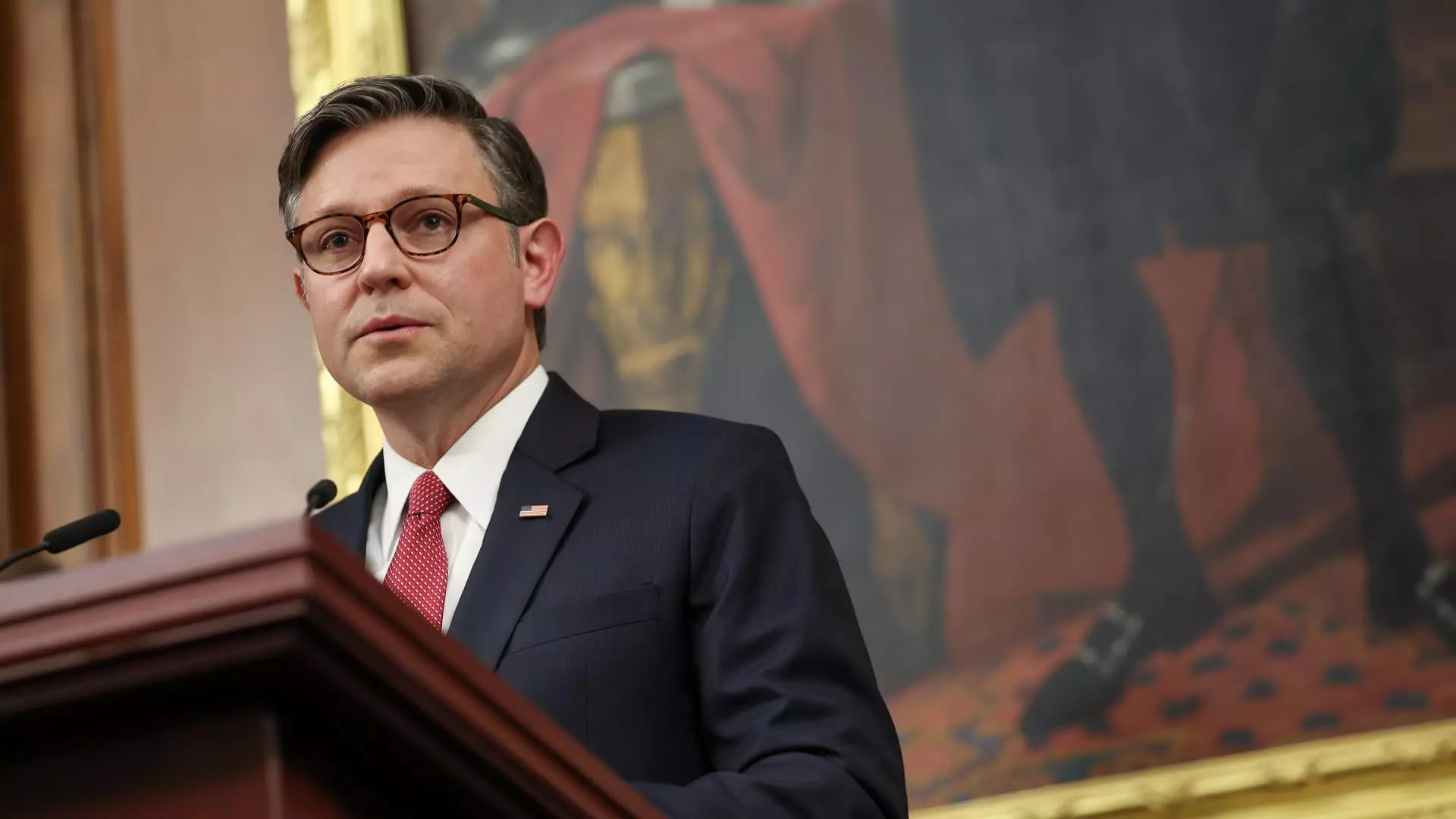In a startling exhibition of constitutional interpretation, House Speaker Mike Johnson, R-La., recently labeled the War Powers Act, a legislative measure established during Nixon’s presidency to check presidential war-making capacity, as unconstitutional. This assertion was articulated amidst rising tensions in the Middle East, with the Speaker firmly defending President Trump’s military actions against Iranian nuclear targets as permissible under Article II of the U.S. Constitution. While Johnson’s perspective does not deviate from a long-standing tradition of executive power, it raises significant concerns about the deteriorating role of Congress in matters of military engagement—an alarming trend that underpins much of contemporary governance.
The Constitution distinctly allocates the power to declare war to Congress—a mandate that has been all but ignored since World War II. Instead, the executive has increasingly sidestepped this responsibility, a trend that continues to unfold with disconcerting frequency. With Johnson’s endorsement of Trump’s strikes, we are witnessing yet another instance where the spirit of the Constitution is diluted, leaving a power vacuum that the presidency appears eager to fill. This deviation is especially troubling as it contravenes the intent of the Founding Fathers, who were wary of the concentration of power in any one branch of government.
A Congressional Deadlock
Amidst this backdrop of unchecked executive action, there is a stark irony in the fact that legislation aimed at curbing unauthorized military action is struggling to gain traction. Representatives Thomas Massie, R-Ky., and Ro Khanna, D-Calif., have taken the initiative to propose a War Powers resolution to restrict hostilities in Iran, a move that has drawn support from over a dozen House Democrats and a parallel effort in the Senate led by Senator Tim Kaine, D-Va. However, the Speaker’s dismissal of this resolution is emblematic of a broader failure of the legislative branch to exercise its constitutionally mandated checks.
The War Powers Resolution, a critical safeguard to prevent endless military engagements, requires the president to notify Congress within 48 hours of military action and limits its duration to 60 days without explicit congressional approval. However, the reality on the ground is that both Congress and the judiciary seem unwilling or unable to check presidential authority in matters of foreign policy. This reluctance pushes us further down a perilous road—one in which military actions become normalized and discussions of war transcend traditional congressional oversight.
The Interplay of Politics and Presidency
Interestingly, Johnson’s comments also reveal the intricate game of politics at play within the Republican Party, as evidenced by Trump’s disdain for Massie following his dissent on significant spending legislation. The President’s open scorn for a fellow Republican, branding him a “Third Rate Congressman,” underscores a chilling dynamic where dissent within the party is met with swift retribution. It conveys a message to others: toe the line, or risk being ostracized.
Moreover, the crux of this internal fracture raises pivotal questions. How can Congress maintain its authority if party alignment dictates compliance over constitutional fidelity? Johnson’s facilitation of the continuation of executive breadth in military matters grimly exemplifies how partisan politics may drown out essential institutional principles. The functions of governance ought to transcend party loyalty, yet the current landscape suggests otherwise.
A Call to Reinstate Balance
As we navigate these tumultuous waters, the growing preeminence of executive power over legislative oversight is deeply concerning. The principles of democracy demand equilibrium, with a balance of power that prevents any single entity from wielding unchecked authority. The disregard for the War Powers Act not only erodes accountability but risks entangling the nation in protracted conflicts without the consent of the governed.
To reclaim this balance, Congress must proactively assert its war powers, through both legislation and a renewed commitment to its constitutional duties. Only through a concerted effort to reclaim its role can the legislative branch serve as an effective counterbalance to executive overreach. These are challenging times, and the stakes are extraordinarily high; the future of democratic governance hangs in the balance. We must revitalize constitutional principles, lest we resign ourselves to a fate where military action becomes merely an extension of presidential whim, devoid of democratic oversight.


Leave a Reply